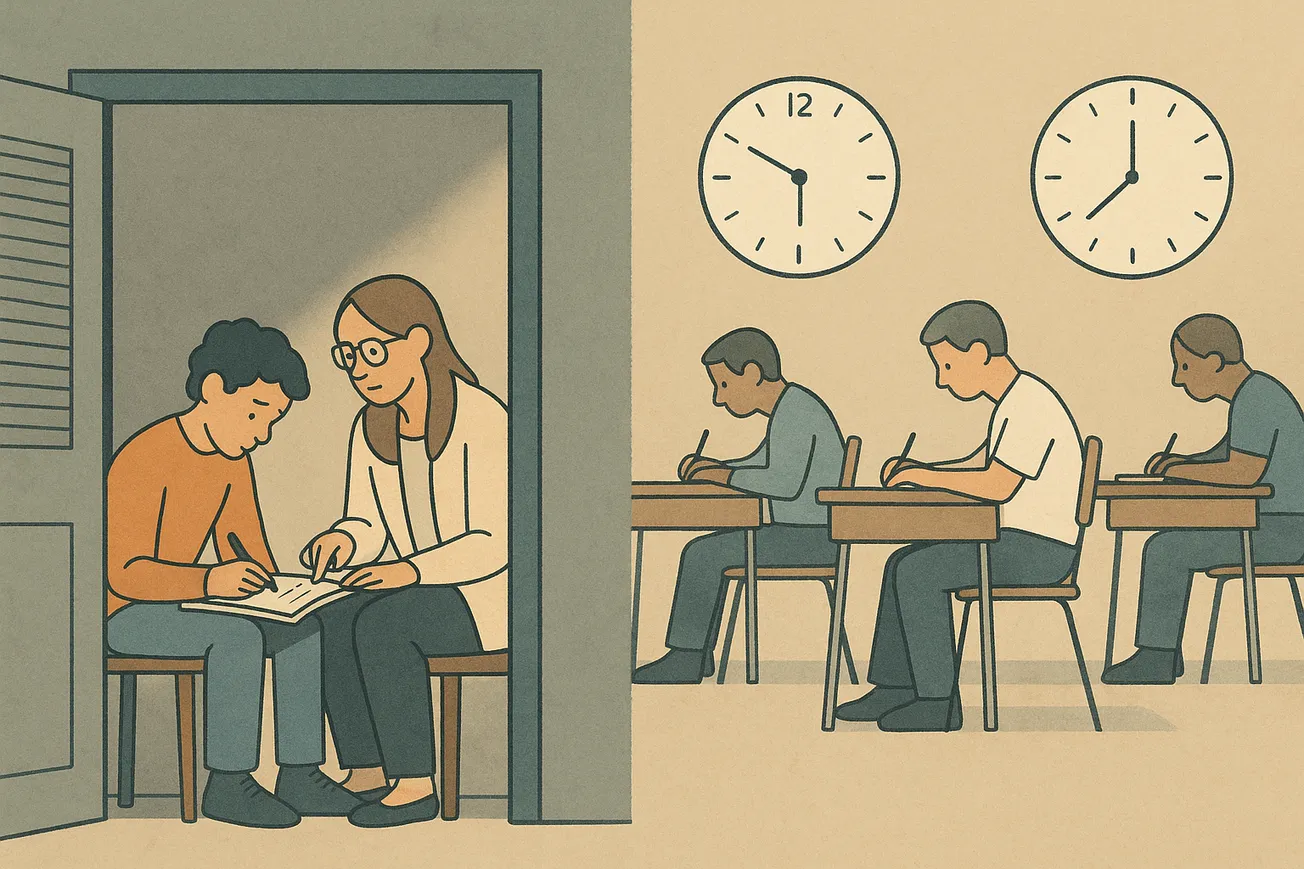Table of Contents
People are always surprised when I tell them I couldn’t read until the third grade. And by “read” I don’t mean the Harry Potter series or Lord of the Rings–I mean Bob books, the ones with lines like “my name is Bob. I like cats”. Writing was a profound struggle as well. In the fourth grade, when I applied to middle school, I had to do a timed writing examination. After seeing my output, the admissions officer for the school I was applying to described it as “ineligible”.
My parents struggled to figure out why I was an English teacher's biggest nightmare, eventually taking me to a learning specialist who evaluated me. After a day of solving puzzles and writing what can be best described as gibberish, she diagnosed me with dyslexia. From then on, instead of going to recess, I would sit in a closet with my school's tutor who helped me catch up on reading and writing.
Then came middle school, where I was introduced to academic accommodations–because of my dyslexia I would get 50% more time on tests and exams than others in class. Looking back, this made quite a bit of sense to me for English and History, where I had to read and write, subjects I struggled with. However, I found it surprising that I also received extra time in math and science, subjects at which I excelled.
Quickly my classmates complained: “Why does Barrow get extra time when he finishes early?” I didn’t think it was right either. By high school, I had completely caught up on reading and writing and abandoned my extra time allotment.
Although I stopped using extra time, I noticed more and more classmates began using it. In my junior year of high school, when I was taking the PSAT, students were split into two gyms, one for extra time and one for regular. Over 60% of the class was in extra time–to a point it seemed not as if they had extra time but everyone else had reduced time.
Increased use of academic accommodations is not just unique to my high school; it has become a rampant issue at Stanford too. In 2012, 1570 students had academic accommodations, by 2020 3672 did.
From my experience with accommodations, I am not surprised at how many people receive them. An acquaintance in high school was struggling in school and went to get “evaluated” for this issue. After the various tests including an IQ test, the evaluator said that she did not have any diagnosable learning disabilities but then suggested that she may have testing anxiety, allowing her to receive extra time.
I hope this was a one-off case of an individual abusing their position but in reality, these learning specialists are paid thousands of dollars by parents who want their kid to receive extra time and it is unlikely the specialist is going to fairly deny them that, leading to situations like at my high school and at Stanford where 60% and 20% of the class use accommodations respectively, according to an anonymous Stanford STEM professor.
Academic accommodations are being seriously abused. Although the system is meant to identify students with specific struggles related to learning and help compensate for those, it has become a way for anyone to spend thousands of dollars to get “evaluated” and in return receive a significant advantage in the classroom across all their subjects. Academic accommodations are not just given for learning disabilities like dyslexia and ADHD, they are equally provided for issues like “testing anxiety.” Although providing accommodations for people with severe anxiety may be justifiable, the fact of the matter is that anyone who can put up the money can receive a diagnosis.
In effect, the system is becoming less about serving inequalities and instead promoting inequality by creating a way for financially privileged students to spend thousands of dollars for an advantage over their peers. I believe reformation of academic accommodations means discrediting evaluators who are shown to be dishonest and instead of having a paid specialist looking at the data to confirm the learning disability an objective third party should mean all the evaluators would do is administer the test.
If this issue is not addressed we will continue to see privileged students receive accommodations at a disproportionate rate to underprivileged students resulting in more inequality. Stanford must step in and rectify this, or risk losing its integrity and the trust of those it purports to serve.





